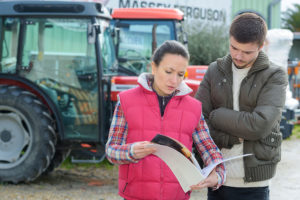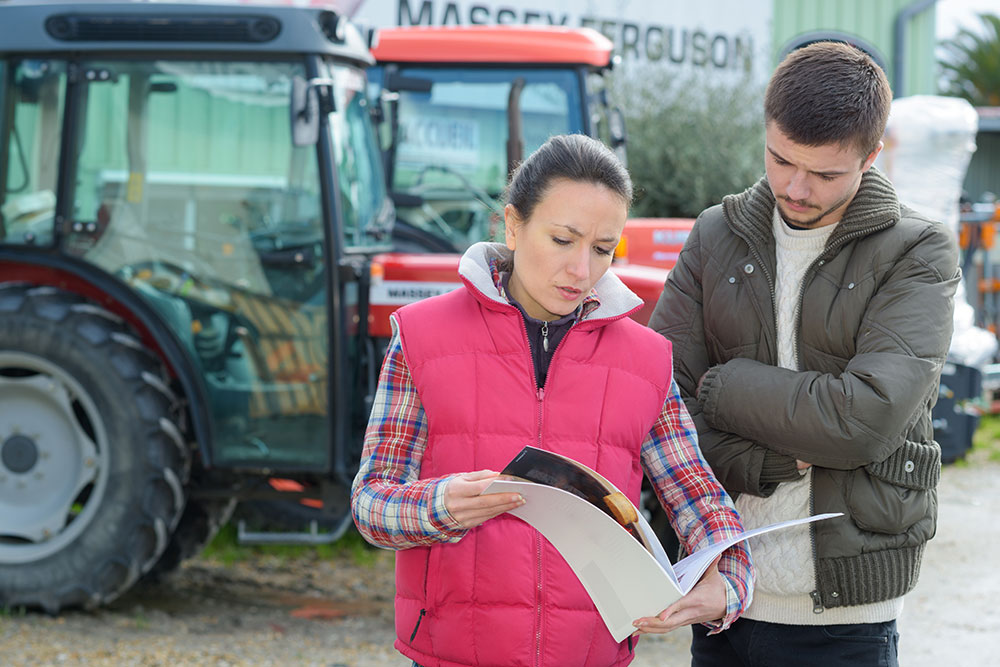Disclaimer: The information on our website is provided for general information purposes only. We make no representations or warranties of any kind, express or implied, about the completeness, accuracy, reliability, suitability or availability with respect to the website or the information contained on our website for any purpose. Any reliance on such information is therefore strictly at your own risk and we are not liable for any damages or losses arising out of or resulting from your reliance on any information contained on our website.
A farm product buyer and purchaser concentrates on buying farm products to resale. Additionally, they may even be interested in purchasing byproducts made at the farm to create an entirely new product. In fact, these agents can work to buy anything a farmer produces that can be sold. Watch a video to learn more.
How to Become a Farm Product Buyer
Though not required, most farm product buyers have earned a minimum of a bachelor’s degree. Additionally, since they must be knowledgable about the products they purchase, they must also know about farming and agriculture. Along with a degree, experience and business skills is essential. For this reason, a blend of experience and a bachelor’s degree in business, is sometimes requested by employers. Organizations such as the American Farm Bureau offer more information on farming, resources, and educational tools. Also, the American Purchasing Society is an excellent website to explore to learn more.
Job Description of a Farm Product Buyer

Farm product buyers spend their day visiting potential vendors to do business with, negotiate contracts to ensure that the farmer and the company they represent benefit from the deal. The goal is to have a mutual agreement and then handle any logistics that are needed to transport their purchase from the farm to the buyer location.
The Farm Product Buyers work with farmers to purchase any number of items from fruit, dairy, grain, trees, and other organic material the farm may be growing. They inspect the product for quality assurance and value. Farm Product Buyers also ensure the farm can handle the delivery of the quantity needed as well. Other tasks include arranging storage and transportation of purchased products. It is also vital that they maintain documentation of all business transactions, product inventories, and communicating all data to their clients’ companies as necessary.
Farm product buyers more than often are in constant communication on the telephone or in person. They work more than the regular 40 hours a week and are often in an office setting. However, at times they do travel throughout the week as well, due to scoping out products, inspecting and surveying products that they may be buying as well. According to O*NET OnLine, there is competition in this industry and a decline in opportunities. Employment experience and networking will be vital in acquiring a job in this career field.
Purchasing Agents and Buyers of Farm Products Career Video Transcript
Purchasing agents and buyers of farm products are savvy shoppers but instead of malls, they head to farms and other locations to buy livestock, oysters, cotton, fruit, grain and much more. They keep farm products moving; from the initial purchase, to quality evaluation, to storage, to sale. Purchasing agents and buyers need to thoroughly understand the needs of the marketplace so they can anticipate which farm goods are needed, how many, and when. Recognizing a good quality product when they see it is essential. Agents and buyers negotiate for the best possible terms, while dealing with farmers, brokers, and processors who also want to get their best price.
The majority of farm product buyers work in one of three markets in the U.S., milk, grain, or Christmas trees. They need to keep detailed records of product inventory and transactions to meet government regulations. These buyers and agents keep up to date on product innovations through research, conducting Internet searches, reading up on news and market projections, or attending trade shows to see products first hand. While this field offers a lot of autonomy, keeping in contact with customers and suppliers is a big part of the job. In addition to a four-year college degree in business or accounting, people in this field need a good working knowledge of farming.
Article Citations
National Center for O*NET Development. 13-1021.00. O*NET OnLine.
The career video is in the public domain from the U. S. Department of Labor, Employment and Training Administration.

